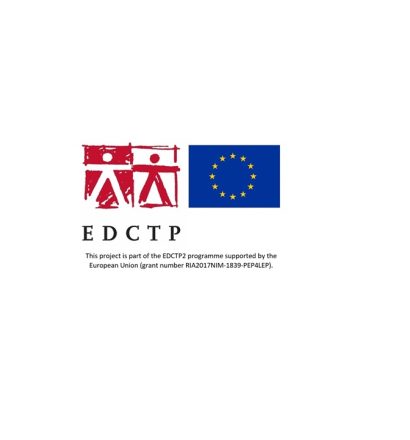Newsletter PEP4LEP 2.0 – December 2024
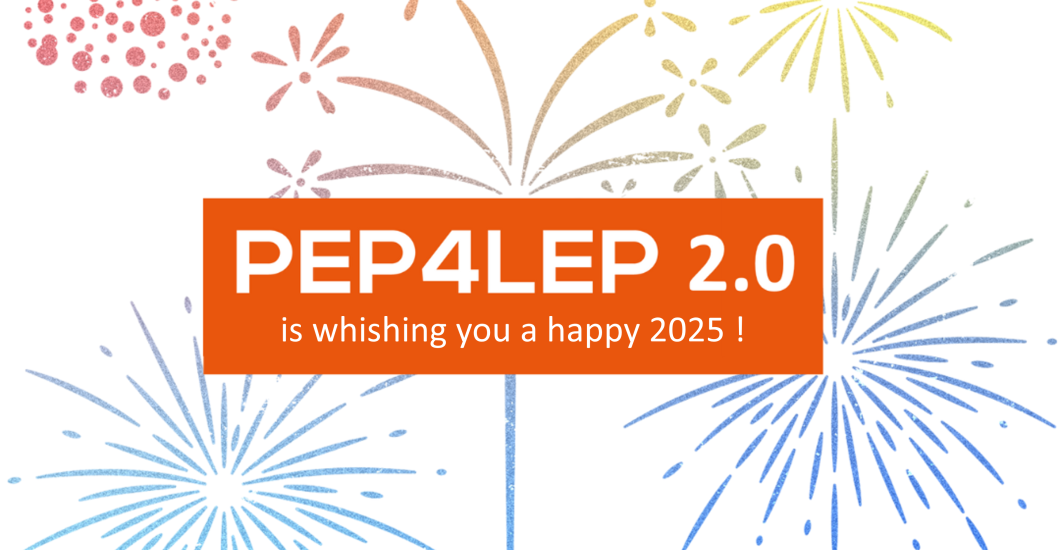
This edition of our newsletter highlights the progress made during the first half year of PEP4LEP 2.0 and shares last updates from the finalisation of the original PEP4LEP project.
In addition, the newsletter also serves to bring you the best holiday wishes from the whole PEP4LEP 2.0 consortium, and we hope to fruitfully engage with you in the new year to come!
Two PEP4LEP PhD candidates graduated!
Two of the PhD students from the PEP4LEP project have defended their theses and obtained their degrees. Big congratulations to Dr. Ephrem Mamo & Dr. Thomas Hambridge!
Dr. Ephrem Mamo obtained his PhD degree from the Addis Ababa University last June as first PEP4LEP PhD candidate to graduate! He shared:
“My thesis focused on comparing the effectiveness of a skin camp to a health centre-based intervention for screening people for leprosy and administering chemoprophylaxis to their contacts. The study recommends integrating health worker training with active case-finding to enhance leprosy case detection in hard-to-reach areas.”
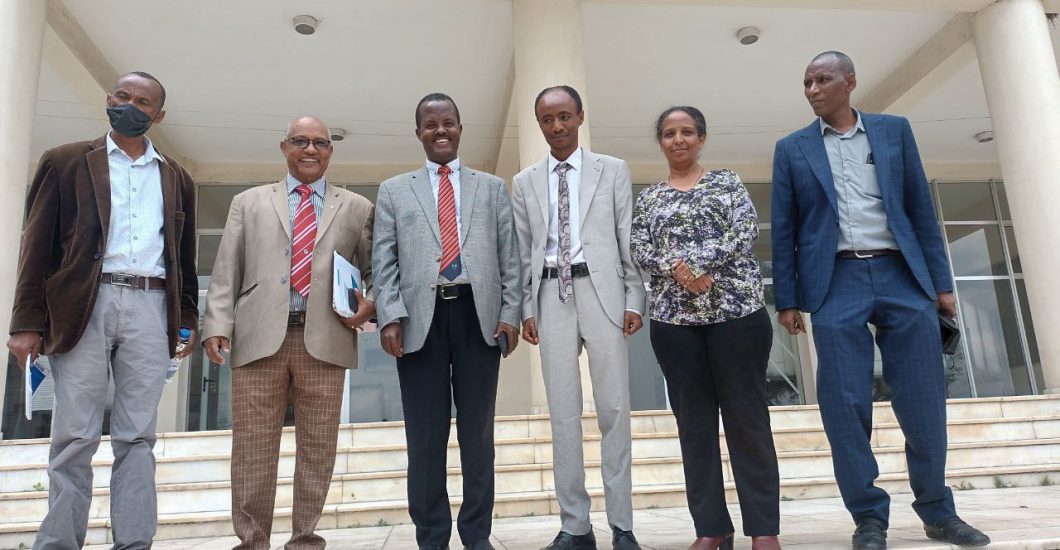
Currently, Dr. Ephrem Mamo is continuing his academic career as a postdoctoral fellow at AHRI, working on the PEP4LEP 2.0 project. His role involves data collection and analysis, and contributing to scientific papers on cost-effectiveness, acceptability, the impact of COVID-19 and the health workers’ capacity assessment. We are very grateful for his tireless commitment in both projects!
Dr. Thomas Hambridge has defended his PhD last September at the Erasmus University Rotterdam. His thesis is titled “Shortening Leprosy Case Detection Delay: Narrowing the window of transmission and disease progression”. It can be reviewed here. We wish Dr. Thomas Hambridge all the success in his further career in global health and science!
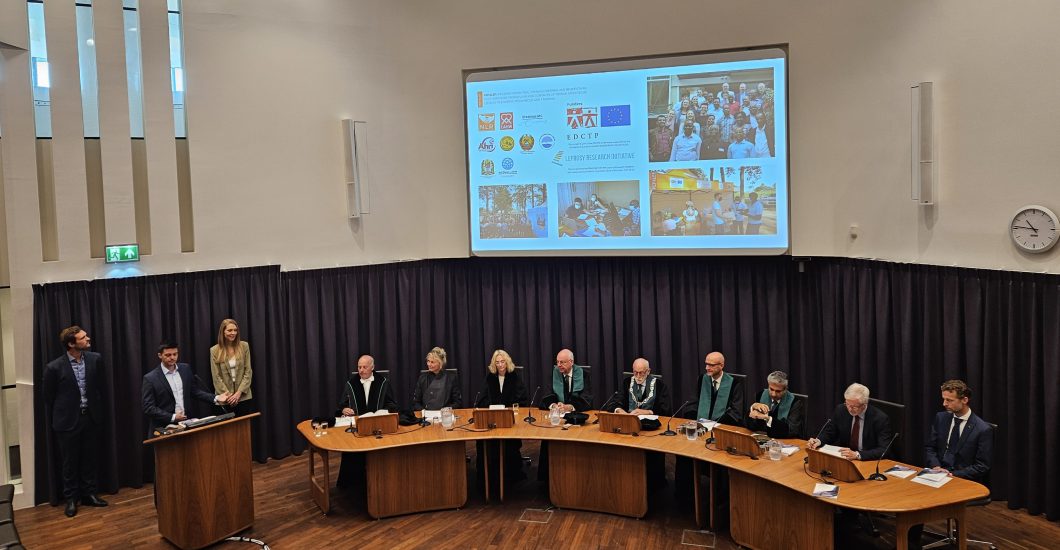
Project publications
Great news: the PEP4LEP consortium published a new scientific paper! This recently published study in the journal PLOS Neglected Tropical Diseases tested the reliability and consistency of the case detection delay assessment tool in Ethiopia, Mozambique and Tanzania. This tool was specifically developed for the PEP4LEP project to assess the time gap between the onset of a patient’s first leprosy symptoms and the moment of diagnosis. You can find the open-access article here.
The official end of PEP4LEP
At the end of November, the annual reporting cycle for year 6 of PEP4LEP was concluded. Thereby, PEP4LEP has officially ended. We want to thank all communities involved in the project for their trust and support. We would also like to thank all health staff, researchers and the consortium partners for their hard work the past couple of years. We are grateful for our partnership with EDCTP2.0/EU & the Leprosy Research Initiative (LRI) during PEP4LEP. To conclude, we are looking forward to continuing the work in PEP4LEP 2.0 with our partners.

PEP4LEP 2.0
The new project, PEP4LEP 2.0 which is a follow-up project because of the COVID-19 impact on PEP4LEP, started on the 1st of April 2024, and will continue until the end of March 2026.
PEP4LEP 2.0 will contribute to the objectives of the original PEP4LEP project. In addition, we aim to understand and overcome the effect of the COVID-19 delays and assess the long-term impact of both interventions using mathematical modelling. In the first half year, skin camps have been conducted in all three countries, and project meetings were held through which the status and ongoing developments were discussed.
Read more about the PEP4LEP 2.0 project
Country updates
Data collection is ongoing in the three implementing countries: Ethiopia, Mozambique, and Tanzania. From April until September 2024, PEP4LEP 2.0 has included a total of 3,271 contacts of leprosy index patients in all three implementing countries. These contacts underwent screening for leprosy and other skin diseases. We successfully identified 1,576 people (48% of all enrolled contacts) with skin diseases other than leprosy, as well as 68 leprosy patients. In total, 2,928 contacts have received a single dose of the antibiotic rifampicin for leprosy prevention.
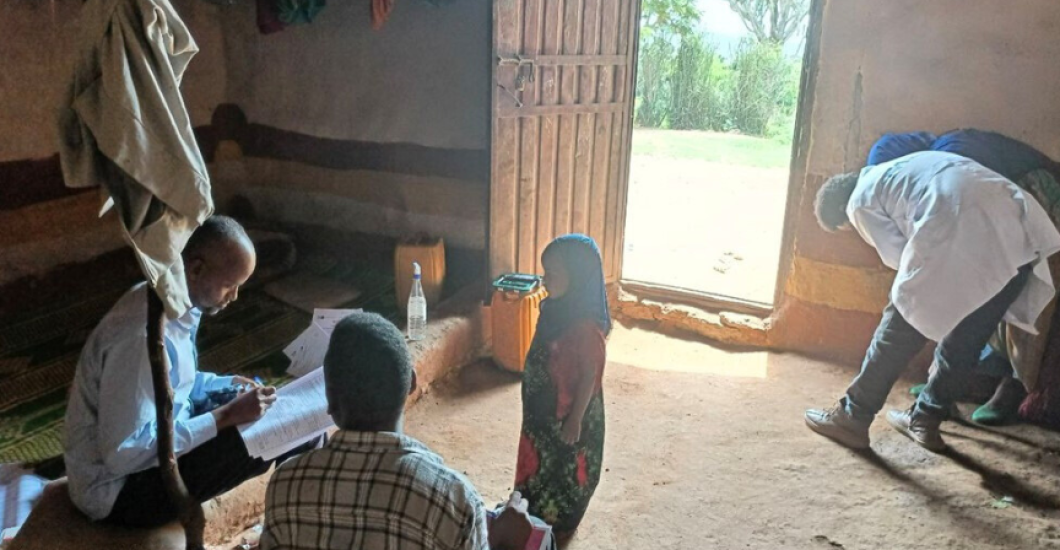
Ethiopia
In the first six months of PEP4LEP 2.0, the team in Ethiopia has organised nine skin camps, in which 781 contacts received chemoprophylaxis for leprosy and through which four new cases of leprosy were identified. In addition, eight index patients and 33 contacts were enrolled through the health centre intervention. One contact was diagnosed with leprosy. In Ethiopian skin camps, skin screening sessions are often conducted in the homes of community members who generously offer their houses for this purpose, as you can see in the photo shared by the Ethiopian team. In the first half year of PEP4LEP 2.0, the team visited several health facilities which are part of the project.
Mozambique
Since the start of the PEP4LEP 2.0 project, Mozambique made great progress by organising 13 skin camps in the first six months. Through these skin camps 1,439 contacts were included of which 1,269 received chemoprophylaxis for leprosy and 25 new cases of leprosy were identified. In the health centre intervention, 15 index patients were enrolled and 62 of their contacts were screened. Of these, 59 were eligible and took chemoprophylaxis for leprosy and among them no new cases of leprosy were identified. Beside these activities, the team was occupied with capacity strengthening as they organised a refresher training. Additional on-the-job training was provided during the skin camps.
Tanzania
The Tanzanian team is progressing quickly in reaching their PEP4LEP 2.0 targets and thereby overall PEP4LEP objectives. Until September 2024, they have organised nine skin camps, through which they enrolled 890 contacts. After screening, 787 received chemoprophylaxis for leprosy and 38 new cases of leprosy were found. No index patients were enrolled in the health centre intervention during this period. Other tasks the team focused on included conducting refresher training of health care workers and community health workers in July and August 2024, and purchase and delivery of medicines for skin conditions to (several) implementing districts.
NNN Conference in Kuala Lumpur, Malaysia
On 1-3 October 2024, the Neglected Tropical Disease NGO Network Conference took place in Kuala Lumpur, Malaysia. The theme was “Collaboration for Change: Fostering Global Equity and Strengthening Community Engagement in NTDs”. This was a great opportunity to learn from fellow researchers and project staff, and to share the progress of the PEP4LEP project! Unfortunately, due to visa issues, the Ethiopian team was unable to make their planned presentation in Kuala Lumpur. This is a common challenge in global health, where logistical barriers can hinder collaboration and dissemination. We are hopeful that the Ethiopian team will have the opportunity to present at an international platform soon and share their valuable insights.
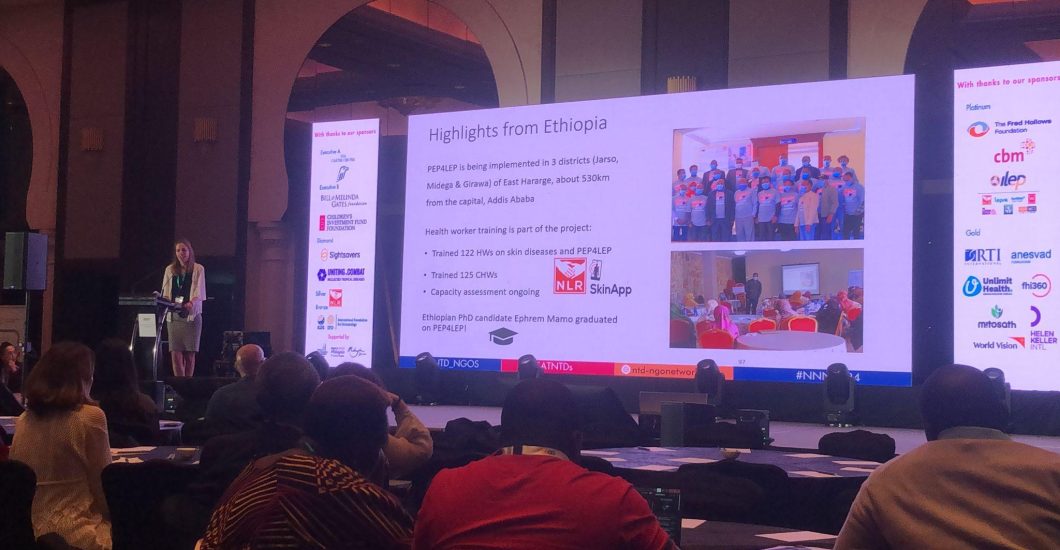
PEP4LEP 2.0 Team updates
Many new faces have joined PEP4LEP 2.0 and we are very happy to introduce them to you! We would like to welcome Cristina Pfuma, Girma Alemayehu and Hugo Strikker. We are also saying goodbye to Marente Mol & Sophie Vissers.
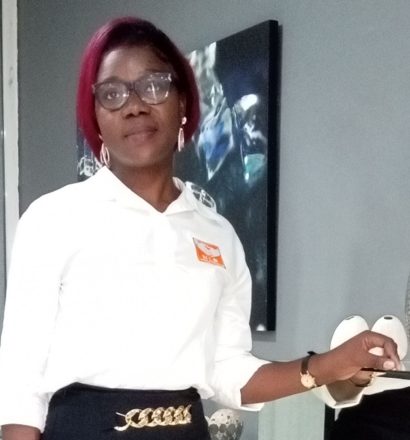
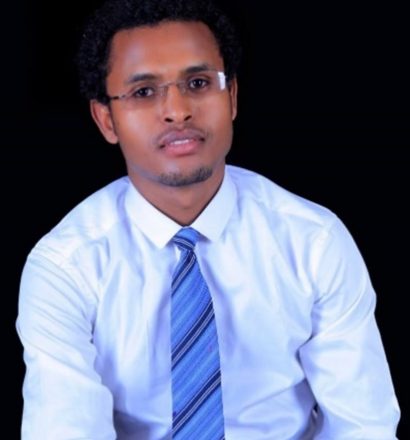
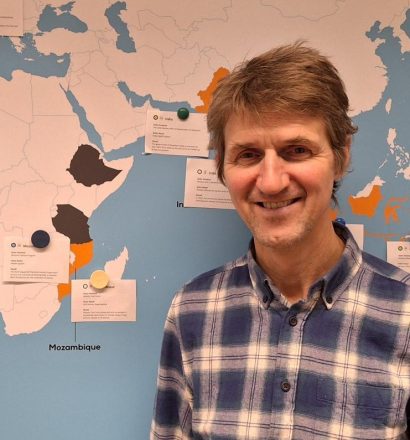
Cristina Pfuma is the new project officer of the NLR Mozambique team. She began her career as a nurse in Mozambique over 12 years ago and has gained extensive experience working with patients facing a variety of conditions, including chronic diseases such as TB, leprosy, and HIV/AIDS. She shared her thoughts with us:
“The work experience on this project, up to now, has been highly constructive for me, as it involves studying neglected tropical diseases. I hope to contribute positively to the well-being of the community affected by leprosy, as well as to the achievement of the project objectives. I am eager to learn from the entire PEP4LEP 2.0 team and, if possible, identify best practices that we can apply until No Leprosy Remains.”
Girma Alemayehu has joined the GLRA team in Ethiopia as the new research assistant. Girma is a licensed senior public health professional specialist with advanced Master’s degrees in Epidemiology and Project Management. Previously, he worked as an Assistant Professor at Wolkite University, where he was actively engaged in teaching, research, and community service projects. He shared his reflections with us:
“I am dedicated to contributing to the elimination of leprosy, a disease that has caused suffering and stigma worldwide. My objective is to engage in research, advocacy, and outreach efforts aimed at increasing awareness, improving treatment options, strengthening capacity, and supporting those affected by this serious condition. I believe, through our collaborative efforts, we can create a world where leprosy no longer poses a threat, ensuring dignity and care for all impacted.”
Hugo Strikker has worked for many years as a financial controller for various organisations focused on international health and the development of inclusive, life-sustaining societies. He recently joined NLR and now also the PEP4LEP 2.0 team. He is exited to be working with the PEP4LEP 2.0 consortium:
“It is truly rewarding to collaborate with so many great international colleagues and partners as part of the PEP4LEP 2.0 project. Together, we are working to stop leprosy transmission while also diagnosing and treating other skin diseases across three different countries.”
PEP4LEP goodbyes
We are waving goodbye to some of our PEP4LEP colleagues: Marente Mol and Sophie Vissers.
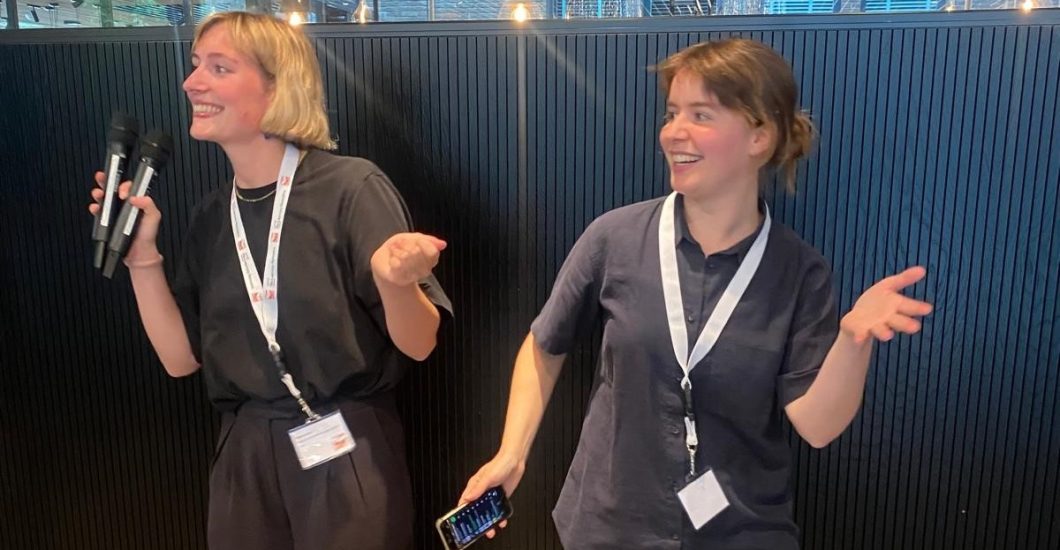
We would like to thank Marente Mol and Sophie Vissers who were working for NLR IO, for their contributions to PEP4LEP & PEP4LEP 2.0. As researcher and advocacy support officers they contributed to day-to-day project management work and supporting research activities. Sophie also worked closely with Erasmus MC and other consortium partners on the cost-effectiveness study. In addition, Marente and Sophie were involved in managing the quality of the data. We wish them all the best in their future careers!
Other announcements from the leprosy field
- On 13 September 2024, the WHO Weekly Epidemiological record – Global leprosy (Hansen disease) update, 2023: Elimination of leprosy disease is possible – Time to act! was published, which describes epidemiological and programmatic data from countries. The full document can be found here (starting at page 501).
- On 19 September 2024, the WHO announced that Jordan has become the first country in the world to be officially verified as having eliminated leprosy. This significant milestone marks a new era in global public health efforts. Congrats to Jordan! Read more about this great achievement here.
- Leprosy Research Initiative (LRI) has launched two calls for proposals: for the Research capacity strengthening grant and for the RESILIENTD grant. The deadline for submission for both calls is Friday 24 January 2025 at 17:00 CET. Find eligibility criteria and submit your Letter of Intent through by clicking here.
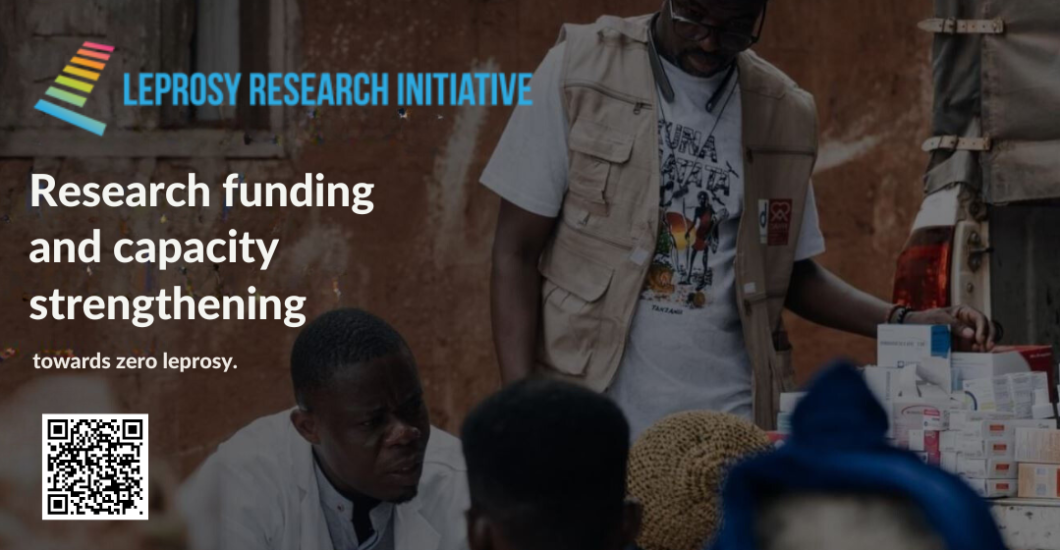
Calendar for NTD & leprosy related events
There are several interesting upcoming events in the leprosy and NTD field, including InCORNTD, the second WHO Global Skin NTD Meeting, the EDCTP Forum and the ILC.
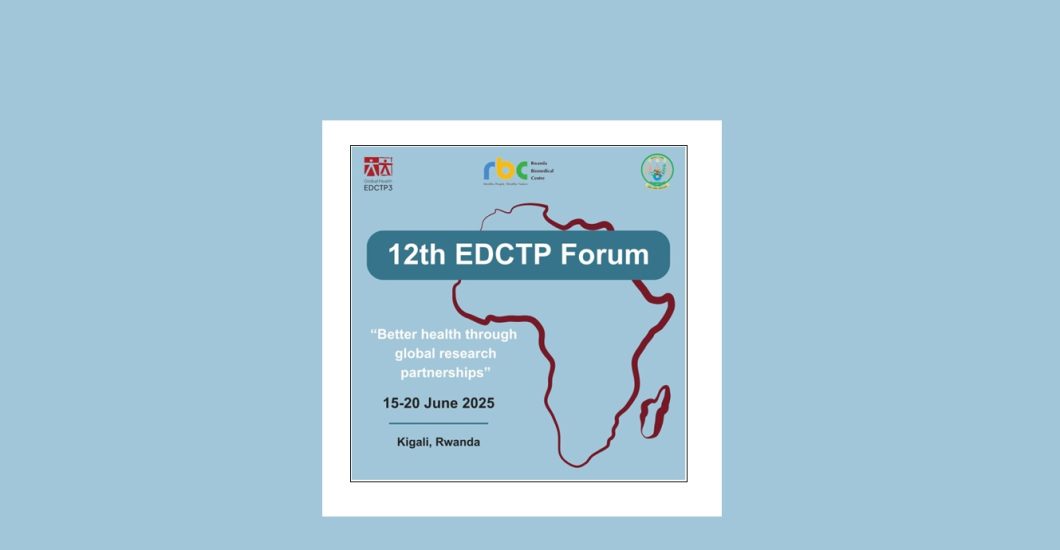
- January 20-22, 2025 (Kigali, Rwanda): International Conference on Neglected Tropical Diseases (InCORNTD), organised by the COR-NTD & ARNTD. More information about this event can be found here.
- 24-25 March, 2025 (Geneva, Switzerland): Second global meeting on skin-related neglected tropical diseases, organised by the World Health Organisation. The meeting builds on the foundation laid by the first global meeting on skin NTDS on 27-31 March 2023. The meeting is focused on “integration” of skin NTDs, as well as cross-cutting issues. Besides joining in Geneva, it is also possible to participate virtually. You can pre-register through this form if you would like to attend. More details can be found at the WHO website.
- 15-20 June, 2025 (Kigali, Rwanda): The Twelfth EDCTP Forum, hosted by the Ministry of Health of Rwanda and the Rwanda Biomedical Centre and organised by Global Health EDCTP3 and the EDCTP Association. This conference provides an international platform for the presentation and discussion of cutting-edge research addressing the burden of poverty-related and neglected infectious diseases in sub-Saharan Africa and the capacity development and networking activities that support this goal. The theme for the 2025 Forum is “Better health through global research partnerships”. For more details, please visit the EDCTP website by clicking here.
- 5-9 July, 2025 (Bali, Indonesia): International Leprosy Congress (ILC), organised by ILA, KSMHI, PERDOSKI and INSDV. The congress upholds the theme: “Towards a World with Zero Leprosy“. The theme aims to enhance the evidence into the clinical care in leprosy early diagnosis and therapeutics in global era and prepare to face the new perspective of dermatology practice. Register through this More information can be found on the ILC website.

